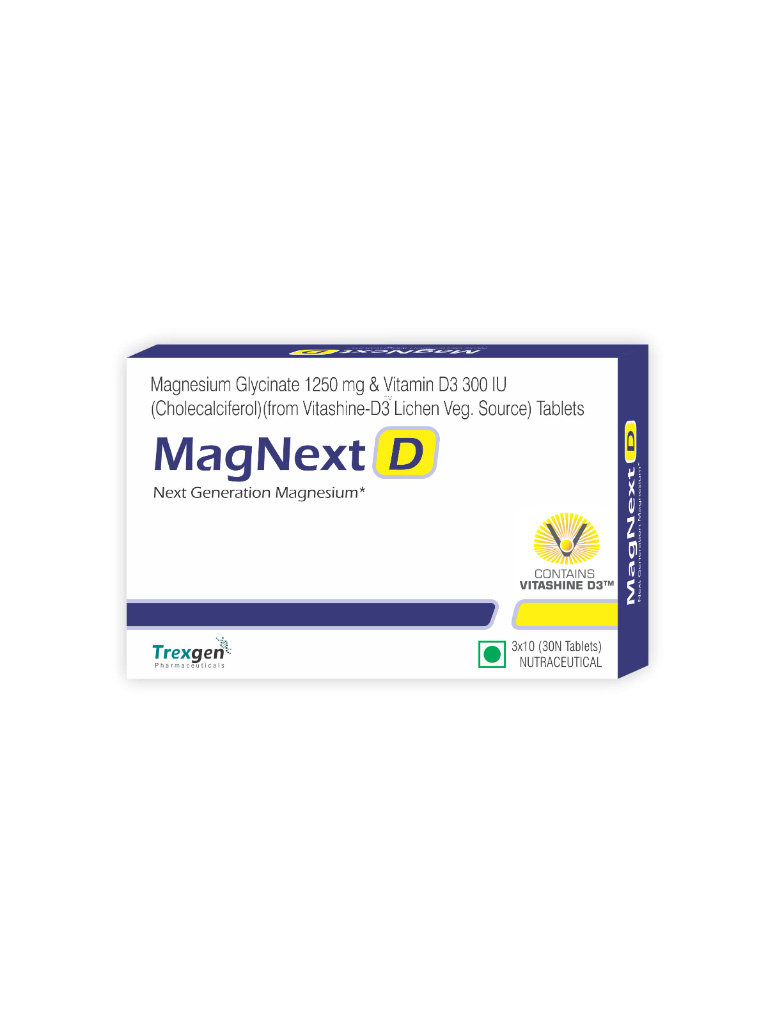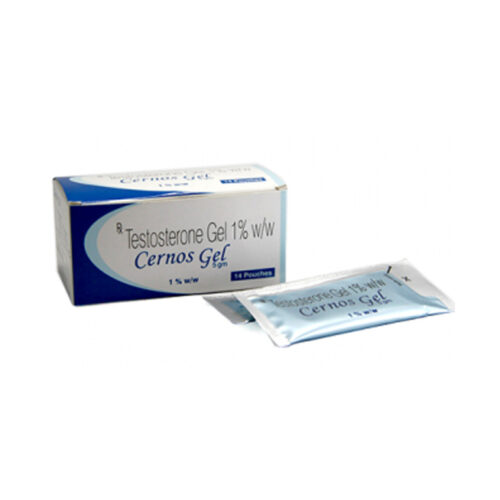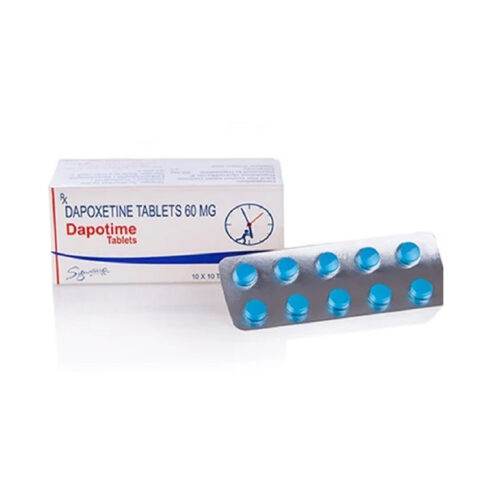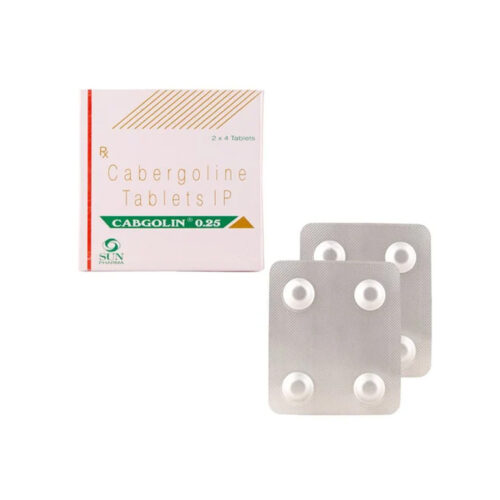Description
What is MagNext D® Magnesium Glycinate Tablet?
MagNext D® Next Generation Magnesium Tablet is a magnesium salt of glycinate known as bis-glycinate with stabilized D3 for its healthy effect on joints, bone, muscle, heart, and brain function. MagNext D® Next Generation Magnesium Tablet offers the dual benefit of free glycine amino acid along with magnesium. It is useful for neuromuscular functions and helps relax muscles and the head from migraines. It also improves bone health in osteoporosis, osteoarthritis, rheumatoid arthritis, and joint pains.
Magnesium Glycinate + Vitamin D3 tablets are a scientifically-formulated dietary supplement designed to support healthy bones, muscles, and overall well-being. This unique combination of ingredients is ideal for those looking to boost their magnesium and vitamin D3 intake.
Magnesium is an essential mineral that plays a critical role in numerous bodily functions, including muscle and nerve function, energy metabolism, and bone health. Vitamin D3, on the other hand, is a fat-soluble vitamin that helps the body absorb and utilize calcium, which is crucial for bone strength and density.
These tablets are carefully formulated with highly bioavailable magnesium glycinate, which is easily absorbed by the body and well-tolerated by individuals with sensitive digestive systems. Additionally, the inclusion of vitamin D3 helps to enhance the absorption and utilization of magnesium, further promoting its effectiveness.
What’s more, these tablets are manufactured to the highest standards of quality and purity. Each tablet contains high-quality, natural ingredients that are free from common allergens and harmful additives. They are also gluten-free and non-GMO, making them suitable for individuals with dietary restrictions.
If you’re looking to support your bone and muscle health while promoting overall well-being, Magnesium Glycinate + Vitamin D3 tablets are an excellent choice. Their scientifically-formulated blend of magnesium and vitamin D3 offers a safe and effective way to meet your daily nutrient needs.
Benefits of Magnesium Glycinate Supplement
Consider magnesium glycinate supplements if you have a condition that affects your magnesium levels, like diabetes or inflammatory bowel disease (IBD). Alcohol and medication use can affect your levels, too.
Magnesium is an essential mineral for the human body that plays a crucial role in various physiological processes, including muscle function, bone health, and the nervous system. According to research, around 50% of people in the United States have a magnesium deficiency. However, magnesium deficiencies can be difficult to detect because the kidneys limit their excretion, and symptoms of low dietary intake are rarely seen. The recommended daily intake of magnesium ranges between 310 to 420 mg/day for most individuals. Adequate magnesium intake can help lower blood pressure, reduce the risk of stroke, cardiovascular disease, and type 2 diabetes, improve bone health, and prevent migraines.
Magnesium glycinate is a supplement that helps boost magnesium levels in individuals with a deficiency. Magnesium glycinate is highly bioavailable, meaning the magnesium is easily absorbed through the small intestine. It has several benefits, including relieving anxiety, promoting bone health, managing blood sugar in individuals with diabetes, maintaining normal heart rhythms, reducing symptoms of premenstrual syndrome (PMS), and amplifying exercise performance. Magnesium supplementation has also been shown to improve certain conditions, including fibromyalgia and chronic fatigue syndrome.
Symptoms of magnesium deficiency include loss of appetite, nausea, fatigue, vomiting, tingling, muscle cramps, and muscle contractions, abnormal heart rhythms, and seizures. Common reasons for magnesium inadequacy include alcohol use, chronic diarrhea, excessive urination from uncontrolled diabetes, malabsorption from Crohn’s disease, celiac disease, and inflammatory bowel disease, malnutrition, and some medications.
Magnesium glycinate supplements are widely available in pill or powder form, and like other supplements, they’re best taken with food to help reduce stomach upset. Excessive magnesium levels are not typical in healthy people because the kidneys usually eliminate the excess. Natural sources of magnesium include dark green leafy vegetables, nuts, and seeds, seaweed, beans and lentils, whole unrefined grains, fruits, and fish.
Although magnesium supplementation is generally considered safe for healthy adults, it’s essential to consult with a healthcare provider before starting magnesium supplementation. They can help determine the appropriate daily dose for your needs. When choosing a supplement, always check the amount of elemental magnesium present, and buy supplements from a respected source. The Food and Drug Administration doesn’t review supplements for safety or efficacy. It’s also crucial to talk with a healthcare provider if you have any heart or kidney problems or if you’re taking antibiotics or other medications.











